-
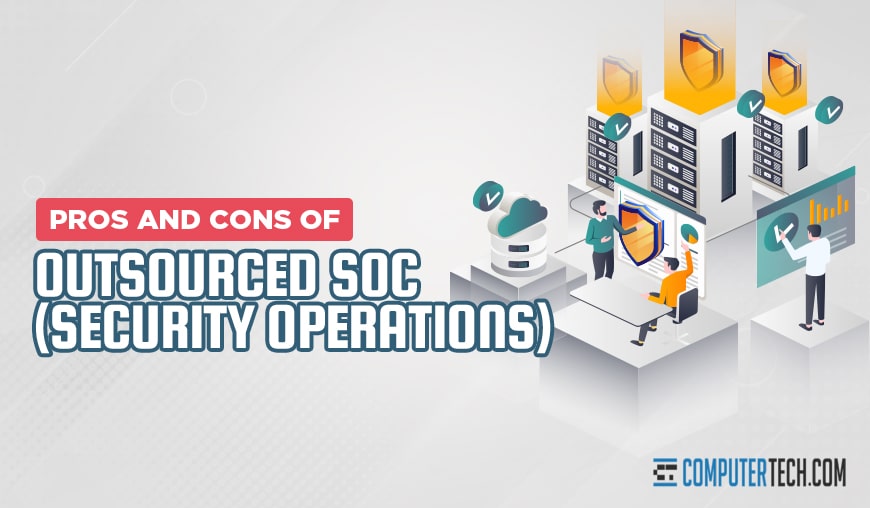
Security and technology are concepts that go hand in hand, given how often technology is used to store sensitive information. As a result, the industry of security operations teams in companies reliant on technology is seeing consistent growth. Most companies’ information technology department traditionally handles cybersecurity, but creating such a department in-house can be a costly investment.
For this reason, the idea of outsourcing a company’s cybersecurity needs to a third-party firm has seen a rise in popularity. However, whether or not this is the best choice for their needs has become a matter of debate. With this article, we hope to provide some guidance on the pros and cons of outsourcing your cybersecurity needs to an external firm.
What Does SOC Mean?
If you are not heavily involved in the technical side of things, you might not fully know what SOC is and what it involves. A SOC is a security operations center where cybersecurity experts can maintain the safety of critical information to both you and your customer base. The role of the security operations team involves establishing essential cybersecurity protocols and upgrades to ensure that the data you are handling remains secure in even the worst-case scenarios.
Depending on the type of work your company does, you might have more reasons than others to protect data. For example, financial information, private corporate data, and even personal data for employees and customers could all be stored on your server for ease of commerce. This security involves the implementation of firewalls and anti-hacking security protocols to protect against unauthorized access to the company database.
In some cases, there are even federal regulations for how your data is handled to protect privacy and maintain your industry’s regulations. For example, some regulations specify how payment card information is processed to ensure the security of the customer’s information.
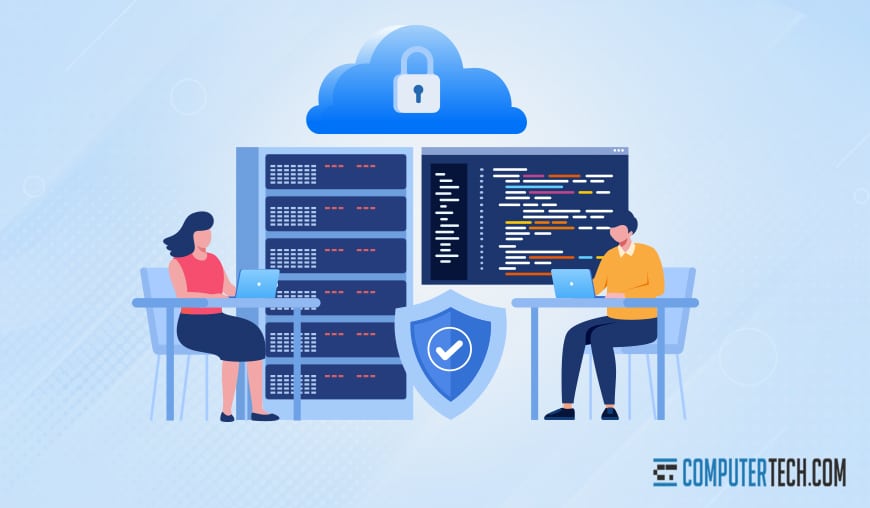
The average SOC will host analysts, security engineers, and managers with experience in networking and IT security. For companies responsible for this sensitive data, SOC’s are an essential department. These employees need up-to-date equipment and training to ensure that they can keep up with any new digital security threats that might arise.
The SOC boils down to where your security operations staff will be operating from to put these measures into practice. All of this makes investing in an efficient SOC a crucial decision. However, deciding to host a SOC in-house or outsourcing is a matter of some debate.
The Pros of Outsourcing Security Operations
Now, knowing whether or not to outsource your SOC needs is dependent on a variety of factors that can be affected by the resources you have to draw on. One of the biggest advantages of outsourcing your SOC needs is the amount of money it saves you in the long run. In attempting to build an in-house IT department, you need to finance the staff and equipment they will need to execute cybersecurity operations.
Not only will you need to spend hundreds of thousands of dollars on computer equipment, but you will also need to accommodate the SOC staff’s salary into your yearly expenditures. Depending on the size and structure of your company, this might not be sustainable long-term. This is where outsourcing becomes a valuable asset to overcome these exorbitant costs. By using a third-party IT firm for your SOC, you would not be responsible for staffing or supplying it.
Instead, you would only be financially responsible for the monthly or annual fee required to retain the firm’s services. This lessened cost allows you to allocate your budget more efficiently while also enjoying the full range of benefits afforded by a SOC. The finances also apply to the cost of renovating parts of your office complex to accommodate all of the hardware your security operations team will require to sufficiently do their job.
If you are lacking in office space for an actual SOC to exist, you will simply be unable to host one at all. In these instances, you would have little choice besides outsourcing your needs or funding an entire move from one building to a larger space. In the long run, outsourcing your SOC needs is a cheaper option when compared to funding the move, the hardware, the software, and the staff.
However, the financial end of things is not the sole benefit that outsourced SOC offers. One of the most important benefits is the vast range of professionals your retained SOC will have to draw on to dedicate to your company’s needs. For example, when staffing your own IT department for security operations, you will only have access to the professionals directly under your employ working from the location of your SOC.
When outsourcing your SOC, the firm you retain will be able to draw from a wider array of talent that might not be available otherwise. These firms can contract independent operators and hire individuals with diverse specialties and qualifications that might be crucial in solving a niche issue or security concern. This talent pool is also a time-saver since you do not need to spend as much time looking for someone to perform a specific task required of SOC staff.
Additionally, this service tends to include a team dedicated specifically to cybersecurity operations instead of general staff. As a result, you can enjoy assistance from IT professionals specializing in securing a network rather than hoping that someone from the general support team has the necessary skillset.
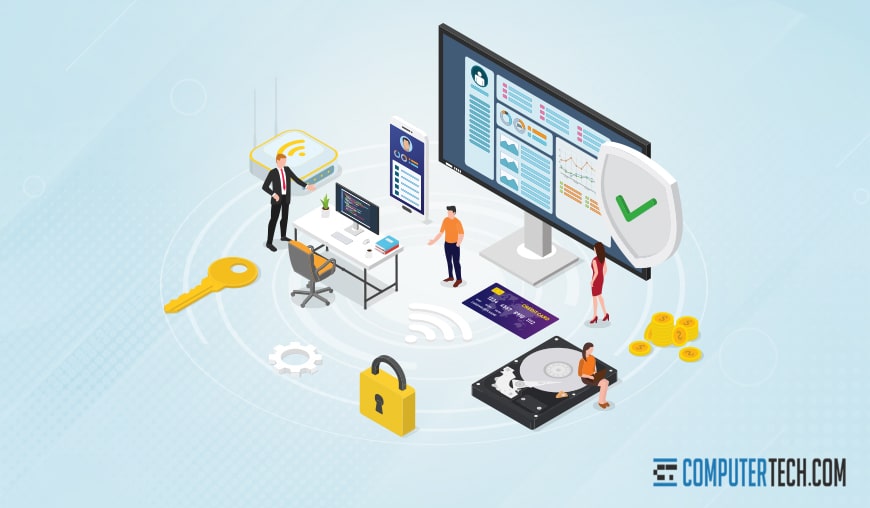
Another benefit associated with outsourced SOC services is that the installation of all the associated hardware necessary to equip the team is already handled. If you were establishing an in-house SOC, you would need to purchase the hardware and install it properly. Outsourced SOC firms will already have this equipment set up and ready to minimize downtime.
This next benefit is a huge one and involves an accommodation that is highly sought after. If you were to staff a SOC in-house, your cybersecurity employees would follow the same schedule as your standard employees, focusing on the company’s primary mission. So, when you close operations for the night, your SOC shuts down for the night as well, and they all go home. This means that if, for whatever reason, you need your cybersecurity staff for some tasks, you will have to wait until the business opens back up to task them with anything.
With an outsourced SOC, most firms will offer 24/7 service to ensure that you have security support whenever you need it. This can be essential for long projects or counter attacks that take place when no one is in the office that the automated security measures cannot handle on their own. If none of the security operations team is available to step in during these situations, your company risks losing important data. So, outsourcing is a viable alternative if supporting a 24/7 SOC is not within the realm of possibility for your resources.
However, no version of a SOC will ever be perfect. There are a few drawbacks for every edge that outsourcing can offer to the level of quality and efficiency of SOC operations.
The Cons of Outsourcing Security Operations
While outsourcing for your SOC needs is undoubtedly an excellent option for your specific needs, there are a few drawbacks that are worth noting before you commit. Notably, the biggest downside to outsourcing for something as crucial as security operations for your network is the lack of direct oversight afforded to you. With in-house divisions, you can interact with the staff directly and ensure that things are operating to your preference. However, this is not an option when you outsource.
Instead, the methods employed will be those preferred by the firm you have contracted to provide service. This can be a daunting idea for some companies that want to keep things close to the vest. However, outsourcing means that you have to trust that the practices used by the IT firm can maintain the quality you need.

This concern can often be compounded because your data will be stored off-site at the IT firm’s server farm location rather than in-house. This means that backup services and access to data can be a matter of your contracted firm’s ability to render rapid service.
Additionally, there is a concern that the quality of service you will receive is based on a tiered system based on the amount you are paying. Every IT firm offers different service levels, with the higher levels drawing the highest costs. This means that if you are only willing to allocate enough funds for the mid-tier service from the provider, you will not be getting access to all of the services they offer.
When using an in-house SOC, you can maximize the service you receive without adjusting the amount of funds you are spending. However, this downside can quickly be matched as you are responsible for upgrading the hardware and software available to your SOC staff.
There is also the matter of system customization regarding the services available. On the one hand, you will receive the attention of a team that specializes in security. On the other, the service you receive is broad-spectrum to be used for many clients. This means that whatever security services and implementations the firm has to offer has to work for any system rather than being specifically tailored to yours.
When you host an in-house SOC, you can ensure that every security protocol and program is designed to keep the specific information you store in mind. This allows you to cut unnecessary software and hardware that would otherwise be mandatory when going through a third party.
Can You Survive Without a SOC?
The short answer is “no.” Cyber data has more or less replaced physical, handwritten files as the medium of choice for storing important information. While this has led to a spike in both convenience and efficiency, this has brought with it a constantly evolving problem. Cyberattacks are constantly changing to keep up with modern cybersecurity protocols.
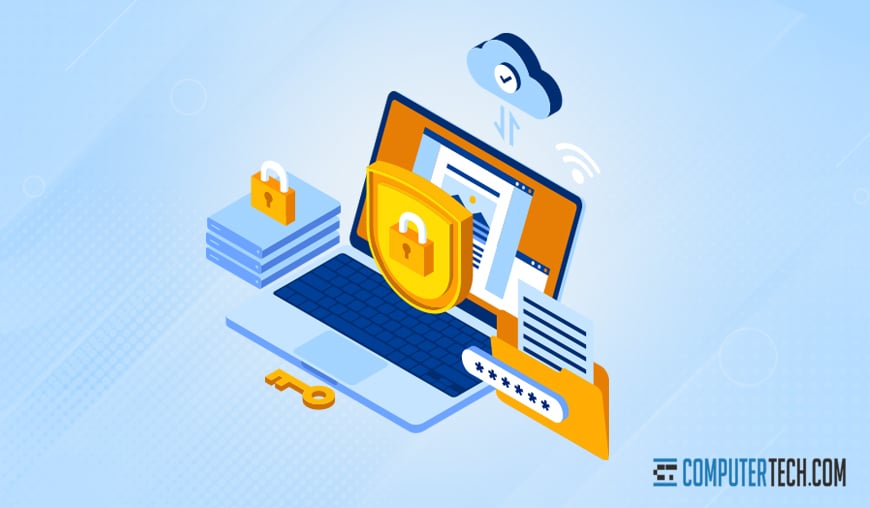
These cyberattacks will allow unauthorized users to acquire confidential files and data unless they are stopped by more robust cybersecurity. So, there is not really an option for a modern business to opt-out of maintaining some form of security operations. While the center does not necessarily have to be within the boundaries of your company’s physical location, there needs to be a place for the security operations personnel to do their job.
With that in mind, we come to the ultimate result of you needing to make your decision.
Getting Technical
Security operations are a vital part of any major industry due to our ever-growing reliance on technology. Cloud-based data storage makes it so that extremely sensitive information is all stored in a central location that unauthorized access could compromise. While there are certainly advantages to creating a space for your in-house cybersecurity staff, there are as many for outsourcing to an established IT firm. Like anything involving technology and maintaining your company’s standards, there will always be pros and cons with the correct decision depending on what you are willing and able to dedicate in the way of resources.
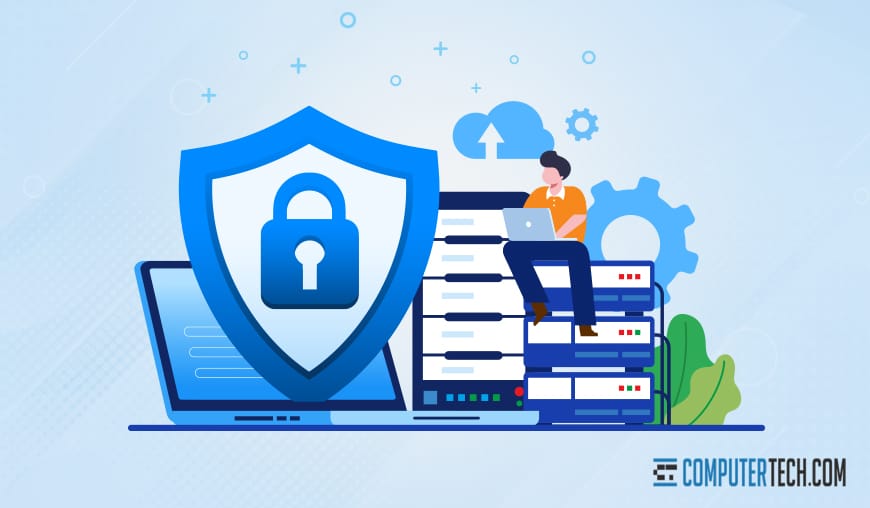
If you find yourself drawn to the advantages that outsourcing offers, we at Computer Tech would like to extend an invitation. We offer extensive information technology services designed to ensure your setup works and is secure. Everything from data backups to strategy development services to help your network reach the most secure levels available. So, if you need effective security operations while maintaining cost-effectiveness, give us a call and see what we can do for you.
Do you have any questions or concerns about security operations, whether it’s for outsourced or in-house SOC? If so, please feel free to reach out and contact us at any time! The pros and cons we have listed may not be enough to swing you in either direction, and we’d be more than happy to give you additional guidance to assist you or your company however we can! We’re standing by and ready to help at a moment’s notice.
About The Author
Herman
Herman is the lead team member here at Computertech.com. He’s been in IT for over 20 years and has expertise in our various IT Services including Microsoft Azure, Microsoft 365, Microsoft Teams and even Computer Security.
No related posts.
IT Support | IT Services | IT Consultant | Computer Support
Speak to a Human (856) 347-2282
- Home
- About Us
- Services
- IT Support
- Managed IT Services
- IT Consulting and Strategy
- IT Security Services
- IT Infrastructure Services and Networking
- Help Desk and Onsite Support
- Communication and Collaboration
- Specialist IT Services
- Data Backup and Disaster Recovery
- Cloud Computing
- Optimizing Network Consulting Services
- Remote Monitoring and IT Management
- Business Computer Services and Consulting
- Blog
- Contact Us
Navigation- Home
- About Us
- » About Computer Tech
- » What To Expect
- Services
- » IT Support
- » Managed IT Services
- » IT Consulting and Strategy
- » IT Security Services
- » IT Infrastructure Services and Networking
- » Help Desk and Onsite Support
- » Communication and Collaboration
- » Specialist IT Services
- » Data Backup and Disaster Recovery
- » Cloud Computing
- » Optimizing Network Consulting Services
- » Remote Monitoring and IT Management
- » Business Computer Services and Consulting
- Blog
- Contact Us
Pros and Cons of Outsourced SOC (Security Operations)
In need of IT Services or IT Support? Call us today at (856) 347-2282
About Us
Computer Tech is an IT Consultant \ Computer Consultant firm providing Computer Support, IT Support and IT Services in South Jersey, IT Support North Jersey, IT Services Delaware, IT Services New Jersey, Philadelphia Pennsylvania.
(856) 347-2282Get started:
- Pros and Cons of Outsourced SOC (Security Operations)
- How to Find and Eliminate Wi-Fi Interference in the Office
- 7 Tips to Wire Up an Office to Maximize Wi-Fi Speed
- Can You Still Recover Hard Drive Data if It’s Water Damaged?
- How New Technology Has Changed the Modern Workplace
- The Pros and Cons of Outsourcing Your IT Department
- Custom Gaming Installations for New Jersey Businesses
- Computer Installation in New Jersey – How Does It Work?
- How to Hire an IT Team to Build an Office Network
- The Benefits and Future of Remote IT Support for Businesses
Newsletter
Computer Tech, LLC.
105 Market Pl Suite 1, Glassboro, NJ 08028
(856) 347-2282
© Copyright 2025 HighTech Business Solutions. All Rights Reserved.



